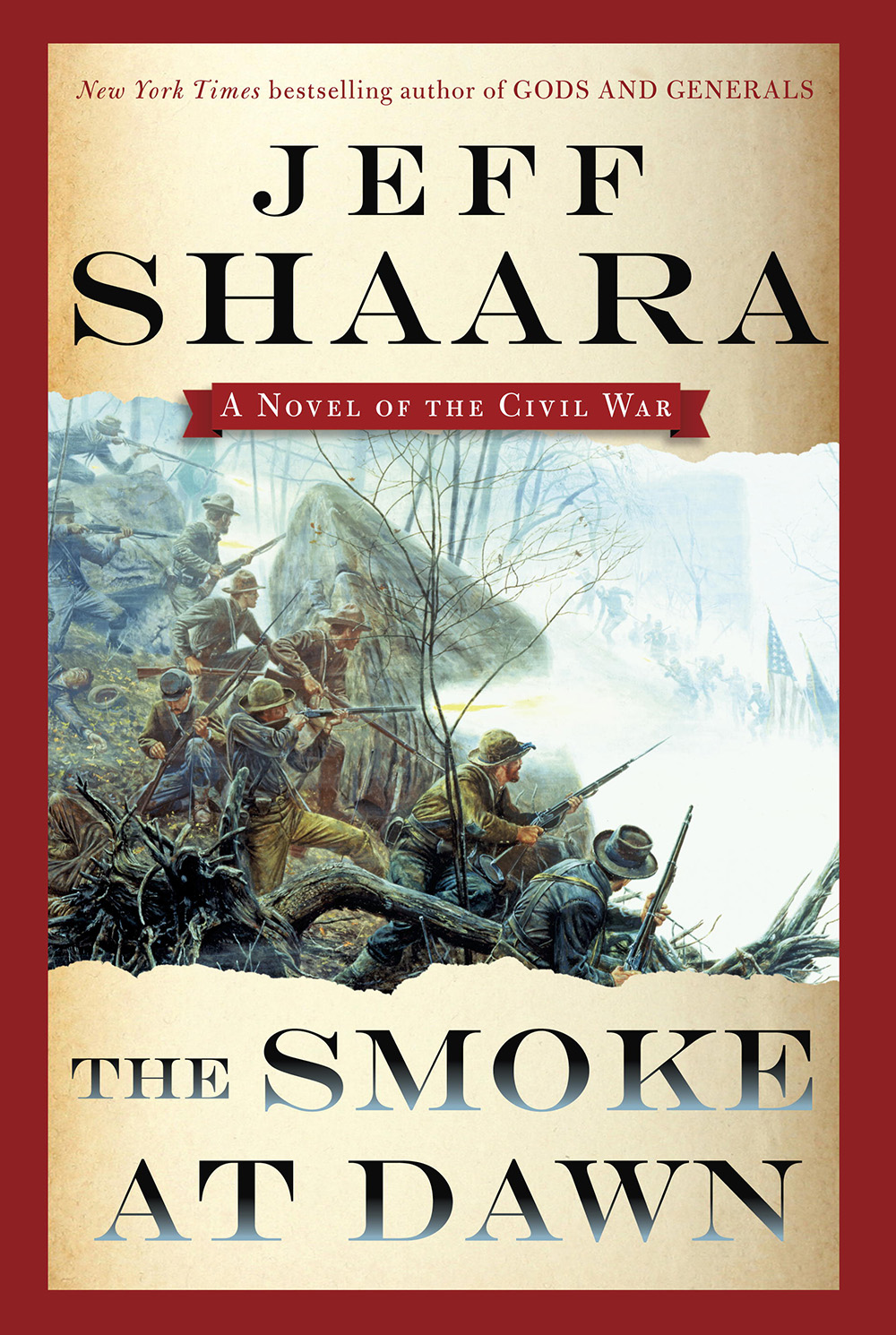The words of war: Jeff Shaara's new Civil War novel set in Chattanooga
Tuesday, June 3, 2014
View our Civil War Sequicentennial site
IF YOU GO• What: Author Jeff Shaara• When: 6 p.m. Thursday• Where: Chattanooga Public Library, Fourth Floor, 1001 Broad St.• Admission: Free, but tickets must be secured in advance at jeffshaarageneraladmission.eventbrite.com; tickets for VIP meet-and-greet from 5-6 p.m. are $50 and available at jeffshaara.eventbrite.com.• Information: 423-757-5310 or chattlibrary.org/events/friends-chattanooga-library-present-jeff-shaara
Jeff Shaara has this one little quirk when he has a new book coming out.
He wants to talk about it. A lot.
But revealing the entire plot of a book is not a good marketing ploy for an author who wants people to actually buy it, he admits, so he must rein himself in.
"One of the things I have to caution myself about - and my wife has cautioned me, too - is that I'm so happy about the new book, when I talk to people, I want to give it all away," Shaara says with a chuckle.
But Shaara, 62, who has written 13 historical fiction novels, landing several on the New York Times bestseller list, has a lot to talk about this month with the release of "The Smoke at Dawn," the third novel in his four-book series about the Civil War. There's even more to discuss when he's in town for a Friends of the Library event on Thursday because the book is set almost entirely in the Chattanooga area.
It focuses on the 1863 campaign around Chattanooga, a railroad-and-river town that was crucial to both the Union and the Confederacy. Lookout Mountain, Missionary Ridge and Chickamauga - names intimately familiar to many people in the area, if not the reasons why they were so important during the Civil War - all play a role in the novel.
"We are glad to be able to offer the chance for Civil War buffs and others to hear from such an author, especially about battles that took place right here," William Sundquist, executive chairman of Friends of the Library, said in a news release.
Yet for Shaara, who visited Chattanooga during research for "The Smoke at Dawn," it's not the battles and bloodshed that keep him interested enough to pound out four books on the Civil War over a four-year period in honor of the war's 150th anniversary, a no-break marathon he describes as "not something I'd do again."
"I look at the people, the people who were there, the people in charge ... That's what makes me fun for me - the people," he says from his home near Gettysburg, Pa.
But while Shaara, whose books all focus on some war - Civil War, World War II, American Revolution - can easily rattle off famous military names such as Ulysses S. Grant, William T. Sherman, Braxton Bragg and Patrick Cleburne, all of whom are characters in "The Smoke at Dawn," he's just as interested in the stories of the "grunts," the simple infantrymen who often lived or died by the decisions of their commanders.
Which means that, when he's doing research for his novels - a process that takes almost as long as the writing - he goes directly to the source.
"I need the voices, to hear the voices, so I stay away from modern biographies, that does me no good at all," he says. "I read memoirs, diaries, collections of letters from not just the commanders but the staff officers, the people who were there, right down to the foot soldiers."
Writing is a relatively new career for Shaara, who was born in upstate New Jersey and raised in Florida. His father, Michael Shaara, was the family's writer, having penned "The Killing Angels," which won the 1975 Pulitzer Prize for fiction and later was the basis for the film "Gettysburg," released in 1993, five years after Michael Shaara's death.
After the success of "Gettysburg" and the attention it brought to "The Killing Angels," publishers went to Jeff Shaara - who'd never written books before - and asked if he'd pick up his late father's mantle. At first hesitant, he finally gave in and, in 1996 published "Gods and Generals," which was made into a film in 2003, and completed the Civil War trilogy with 1998's "The Last Full Measure."
Since then, he's written 11 novels and one nonfiction book, "Jeff Shaara's Civil War Battlefields."
Local historians say they can appreciate what Shaara and his father have done - introducing history to a wider audience that might not generally care about it - but they point out that this is "historical fiction," not scholarly history.
"I do think books like Jeff Shaara's and Michael Shaara's are a very important way of introducing the person who may not otherwise pick up what they're going to presume is a very boring book and introduces that person to a real, pretty accurate version of American history," says Anthony Hodges, a Chattanooga resident and board member of the Tennessee Civil War Preservation Association.
Charles Hubbard of Signal Mountain, a Ph.D. in American diplomatic history who has published five books on the Civil War -four on President Abraham Lincoln - says Shaara is "a fine writer" who puts enough historical accuracy in his novels "to make it plausible and readable." Writers of historical fiction such as Shaara "have a great opportunity to put words in people's mouths," which historians can't do, Hubbard says. "They can take literary license and make history very much come alive."
As someone who grew up in the South, Shaara is very aware that, for some Southerners, the Civil War never truly ended and is still a touchy subject. He's had a "few get in my face a little bit and wag their fingers," he says, but that's actually happened with all his books, whether they're set in the Civil War, WWII or Revolutionary War.
"I take that as a compliment," he says, "because, no matter what they say, I know they've read the book and they're paying attention."
But he's also careful to not take sides in his books or try to insert some sort of symbolism into the plot.
"One thing I don't do, and I'm very careful about this, "When people say, "You're writing about so-and-so, aren't you really writing about George Bush or what we were doing in Vietnam?' I say, 'No.'
"Regardless of what side you're on, I want to take you with me back to the era," he says, and the truth is that none of it is as simple as "John Wayne and bad guys in black hats."
"There are terrific characters on both sides; there are villains on both sides," he says.
Having written historical fiction covering several wars, however, he has found one common theme running through them all - the stories of "an ordinary man rising in extraordinary circumstances."
"It's so consistent, from the Revolutionary War to World War II, the quiet unassuming kid, not destined seemingly for anything, rises up to take command," he says. "I've met a lot of Medal of Honor winners and, to a man, these guys didn't set out to be heroes and they're very reluctant to take credit for it."
Contact Shawn Ryan at sryan@timesfreepress.com or 423-757-6327.


